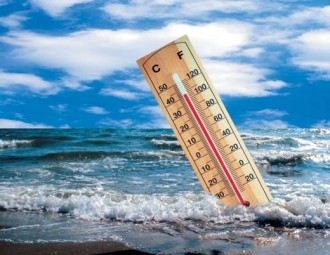Aleh Cherp: Chernobyl and Astravets are two points of influence Belarus exerts on the global future

The Flying University and ecological association “Green network” on October 28 in Minsk presented public lecture of Professor Aleh Cherp “Scenarios of the future: ecology vs. politics”.
Modern computer models and natural sciences forecast scenarios of the social development. With such scenarios both preservation of global ecosystems and economic growth are possible. But it is unclear whether such prospects are possible from political and social points of view.
According to Aleh Cherp, the future of the humanity depends on the change of the fuel and energy balance, “as well as on the millions of different interworking processes”. There are four ways to take a look into the future, the Professor assumes: prognosis, plan, vision, and scenarios. Scientific community prefers scenarios, and this method involves the first three ones. Scenarios of an integrated model combining model of climate and society and accounting for their interaction enable to figure out the future for the next hundred years with rather large variations. But we can say already now that in a hundred years our economic activity will lead to the temperature increase by 3-6° Celsius if we do nothing at all. Actions for decreasing temperature that are being now suggested by governments will slightly reduce this shock – the temperature will get increased by 2.5-5° in a hundred years. However, according to the scientists, temperature increase by only 2° is critical for the humanity; “nobody knows what to become with man later” in such living conditions.
Aleh Cherp sees the development of events as follows: “We are most likely to try and stop this process; however, we will do it too late and will reduce the warming only from 6° to 4°, not from 6° to 2°. In this case life in some places on Earth will become impossible (or very hard at best); very painful and expensive adaptation in several countries will follow. European region will be the least affected of all”. In 100-200 years the world economy will face decarbonization, Aleh Cherp believes.
Belarusan audience cannot but get interested in the “atomic factor”, especially with the building of our own NPP in Astravets. As Aleh Cherp assumes, despite the fact that Belarusan economy has no influence on the world economy, atomic experiment of Belarusans has serious meaning for global processes. “As to the atomic energy, very interesting processes are taking place in the world now. Some countries give up the idea of a NPP, and others are building them very quickly. There are 50 countries that are willing to build and talk about it for 15 years. But after Chernobyl no country in the world built NPPs except for Belarus where the building of nuclear power plant is going on. I.e. Belarus is the first country to enter the atomic field after Chernobyl; none of all 50 countries came close to that, - Aleh Cherp notes. – That is why the understanding of the situation in Belarus and for the whole future is very important, as atomic power engineering won’t disappear whatever turn the situation will take; it will be playing bigger or smaller role. And Belarus is a very small country for a NPP, both in terms of population and in terms of economy. A nuclear power plant is a luxury for such economies. Finland might be the smallest country at the atomic field for now, but its economy is 10 times bigger than that of Belarus”.
The scientist noted that formation of an NPP in Finland is “a very long, painful, and problematic process; it is France who is building it, not Finland”. “In Belarus Russia is doing it, and it is most likely that some other country, probably Russia, will be building NPPs for the countries willing to have atomic power engineering. Thus, it is for the second time that Belarus gets in touch with the global history. It happened for the first time when Chernobyl took place”, - Aleh Cherp believes.
Let us note that all who are interested in the models of the future will still be able to ask Aleh Cherp questions. As Yaraslau Bekish, the head of the ecological association “Green network” said, the scientist is interested in educational projects with his participation in Belarus.
-
03.01
-
07.10
-
22.09
-
17.08
-
12.08
-
30.09



























